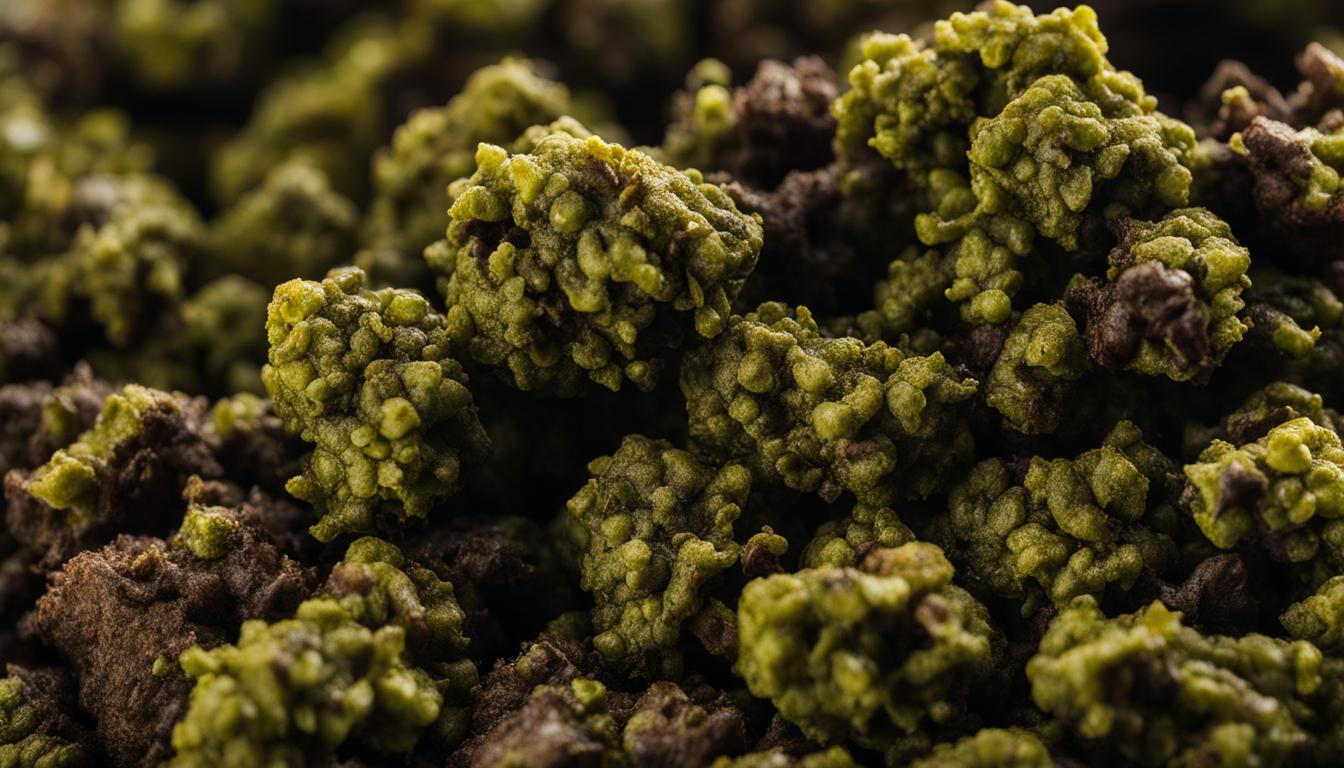Understanding Chronic Renal Failure
Chronic renal failure, also known as chronic kidney disease (CKD), is a common health condition that affects cats. It is a progressive illness that develops over several months or even years, characterized by the gradual loss of kidney function. In this section, we will delve into the definition of chronic renal failure and explore the age and risk factors associated with this condition.
Definition and Causes
Chronic renal failure in cats occurs when the kidneys gradually lose their ability to filter toxins out of the blood. The kidneys play a vital role in maintaining overall health by regulating fluid balance, electrolyte levels, and waste elimination. As the disease progresses, these functions become impaired, leading to a buildup of waste products and imbalances in the body.
The causes of chronic renal failure in cats can vary, and pinpointing a specific cause can be challenging. Some potential factors that contribute to the development of this condition include:
- Autoimmune diseases
- Genetic predisposition
- Kidney cysts
- Infections
- Exposure to certain medications or toxins
While chronic renal failure can affect cats of all ages, it is more commonly seen in mature and senior cats. Approximately 30-40% of cats over 10 years old and 81% of cats over 15 years old are affected by CKD VCA Hospitals. However, it is important to note that chronic renal failure can also occur in younger cats, although it is less common PubMed.
Age and Risk Factors
Age is a significant risk factor for chronic renal failure in cats. The disease predominantly affects mature and senior cats, with the majority of cases occurring in cats over 10 years old VCA Hospitals. Cats over 15 years old have an even higher prevalence of CKD.
While age is a significant factor, breed and sex predispositions for feline CKD have not been conclusively reported PubMed. This means that any cat, regardless of breed or sex, can potentially develop chronic renal failure.
It’s important for cat owners to be aware of the signs of kidney disease in cats, such as increased thirst, frequent urination, weight loss, and decreased appetite signs of kidney disease in cats. Early detection and intervention can help manage the progression of the disease and improve the quality of life for cats with chronic renal failure.
In the next section, we will explore the clinical signs and symptoms of chronic renal failure and the diagnostic tests used to confirm the condition.
Diagnosing Chronic Renal Failure
To properly diagnose chronic renal failure in cats, veterinarians rely on a combination of clinical signs and symptoms as well as specific diagnostic tests. Early detection and diagnosis play a crucial role in managing the disease effectively.
Clinical Signs and Symptoms
Early signs of chronic renal failure in cats may include weight loss, poor coat quality, increased drinking, and producing more dilute urine. As the disease progresses, there is a rapid rise in waste products in the bloodstream, leading to an apparent sudden onset of severe disease (VCA Hospitals). These signs and symptoms should prompt cat owners to seek veterinary care for further evaluation.
Diagnostic Tests
To confirm the presence of chronic renal failure and assess its severity, veterinarians utilize various diagnostic tests. The following tests are commonly employed:
-
Blood Tests: Blood tests, including measurement of blood urea nitrogen (BUN) and creatinine levels, are essential in evaluating kidney function. Elevated levels of BUN and creatinine indicate impaired kidney function. These tests help in determining the extent of kidney failure and guiding treatment decisions (VCA Hospitals).
-
Urine Analysis: Urinalysis provides valuable information about the concentration of urine, pH levels, and the presence of abnormal components like protein, blood cells, and bacteria. It can help identify urinary tract infections and assess the overall health of the kidneys. A urine culture may also be performed to rule out or identify bacterial infections.
-
SDMA Test: A newer blood test to assess levels of symmetric dimethylarginine (SDMA), a biological indicator of kidney function, can aid in the early diagnosis of chronic renal failure in cats. SDMA concentrations increase before serum creatinine levels become elevated, allowing for earlier detection and treatment.
-
Imaging Studies and Biopsy: In some cases, veterinarians may recommend imaging studies such as ultrasound or X-rays to evaluate the structure and size of the kidneys. Microscopic evaluation of biopsy samples may also be performed to provide more detailed information about the extent of kidney disease (Cornell Feline Health Center).
By combining the information gathered from clinical signs, blood tests, urinalysis, and other diagnostic tools, veterinarians can make an accurate diagnosis of chronic renal failure in cats. Early detection and diagnosis are crucial in implementing appropriate feline renal failure treatment plans and improving the cat’s quality of life. If you suspect your cat may be experiencing symptoms of chronic renal failure, it is important to consult with a veterinarian for proper evaluation and management.
Staging and Management
When it comes to managing chronic renal failure in cats, proper staging is crucial as it guides the treatment plan and provides a prognostic guide. Early detection of the disease is associated with more prolonged survival times, emphasizing the importance of early diagnosis at early disease stages PubMed. In this section, we will explore the importance of staging and the different therapeutic approaches for managing chronic renal failure in cats.
Importance of Staging
Staging cats with chronic renal failure is essential for several reasons. It helps veterinarians assess the severity of the disease and determine the appropriate course of treatment. Staging also provides valuable prognostic information, allowing cat owners to better understand the expected progression of the disease and make informed decisions about their pet’s care PubMed.
The International Renal Interest Society (IRIS) developed a classification system for staging chronic kidney disease (CKD) in cats. This system takes into account various factors, such as blood creatinine levels, blood pressure, and urine protein levels. By categorizing cats into different stages, veterinarians can tailor treatment plans to the specific needs of each individual cat PubMed.
Therapeutic Approaches
The treatment of chronic renal failure in cats involves a multifaceted approach aimed at improving and prolonging their lives. The specific therapeutic approaches may vary depending on the stage of the disease, the cat’s overall health, and the presence of any complications.
Some common therapeutic approaches for managing chronic renal failure in cats include:
-
Therapeutic diets: Specialized diets formulated for cats with kidney disease can help reduce the workload on the kidneys and manage the progression of the disease. These diets are typically low in protein, phosphorus, and sodium, and may contain added omega-3 fatty acids to support kidney function VCA Hospitals.
-
Medication and supplements: Various medications and supplements may be prescribed to address specific aspects of the disease. These may include phosphate binders to control phosphorus levels, potassium supplementation, B vitamins, anti-emetics to manage nausea and vomiting, and medications to control blood pressure or reduce proteinuria VCA Hospitals.
-
Subcutaneous fluids: In some cases, cats with chronic renal failure may require subcutaneous fluid therapy to maintain hydration and support kidney function. This involves administering fluids under the skin to help flush out toxins and maintain proper hydration levels VCA Hospitals.
-
Additional treatments: Depending on the cat’s specific needs, additional treatments may be recommended to manage complications associated with chronic renal failure. These may include antibiotics to treat urinary tract infections, medication to address anemia, and interventions to control hypertension Cornell Feline Health Center.
It’s important to work closely with a veterinarian to develop an individualized treatment plan for a cat with chronic renal failure. Regular monitoring of the cat’s condition, including bloodwork and urine analysis, is essential to assess treatment effectiveness and make any necessary adjustments Cornell Feline Health Center.
By properly staging chronic renal failure in cats and implementing appropriate therapeutic approaches, it is possible to provide the best possible care and improve the quality of life for cats with this condition.
Early Intervention and Treatment
When it comes to managing chronic renal failure in cats, early intervention and treatment are key to improving the quality of life for our feline friends. Two crucial aspects of this process are dietary modifications and the use of newer blood tests for early detection.
Dietary Modifications
Cats with chronic renal failure (CRF) may require dietary modifications to support their kidney function and overall health. These modifications aim to limit the buildup of waste products in the body and maintain a balance of essential nutrients.
Some common dietary recommendations for cats with CRF include:
- Limiting fluid intake: This helps prevent fluid buildup in the body, which can lead to heart and lung issues. Monitoring fluid intake is particularly important for individuals with CRF or those on dialysis (MedlinePlus).
- Low-protein diet: Restricting protein intake helps reduce the workload on the kidneys and minimizes the accumulation of waste products. However, it’s important to ensure that cats still receive adequate calories and essential nutrients (MedlinePlus).
- Limiting salt, potassium, phosphorous, and other electrolytes: Controlling the intake of these minerals helps maintain balance in the body and prevents further strain on the kidneys (MedlinePlus).
Consulting with a veterinarian is crucial when making dietary modifications for a cat with CRF. They can provide specific recommendations tailored to the individual cat’s needs, considering factors such as age, overall health, and the stage of the disease.
Newer Blood Tests
Early detection of chronic renal failure in cats is vital for timely intervention and treatment. Traditional blood tests often rely on measuring serum creatinine levels, which may not increase until significant kidney damage has already occurred.
However, there is a newer blood test available that assesses the levels of symmetrical dimethylarginine (SDMA), a biological indicator for kidney function. SDMA concentrations increase before serum creatinine becomes elevated, allowing for early detection of kidney dysfunction in cats (VCA Hospitals). This early detection can enable veterinarians to implement appropriate treatment plans and interventions sooner, potentially slowing down the progression of the disease.
By utilizing newer blood tests, veterinarians can identify cats at risk for or in the early stages of chronic renal failure. This allows for proactive measures to be taken, including dietary modifications and targeted treatments, to help manage the condition and improve the cat’s quality of life.
Remember, regular veterinary check-ups and open communication with your veterinarian are essential for monitoring your cat’s kidney health and ensuring that any necessary interventions are implemented promptly.
Prognosis and Care
When it comes to chronic renal failure in cats, the prognosis can vary from one cat to another. Some cats may respond well to treatment and experience an improved quality of life, while others may have a more challenging prognosis. Early diagnosis and intervention are crucial in managing this condition effectively and improving outcomes for feline patients.
Variability in Prognosis
The prognosis for cats with chronic renal failure can be influenced by various factors, including the stage of the disease at diagnosis, the age and overall health of the cat, and the response to treatment. It’s important to note that each cat is unique, and their response to the disease and treatment can differ. Early detection of feline renal failure symptoms and timely intervention may lead to better outcomes in terms of quality of life and survival for cats with chronic renal failure.
Regular veterinary check-ups and ongoing monitoring of kidney function are essential for cats with chronic renal failure. This allows for adjustments in treatment plans and interventions as needed to maintain the cat’s well-being. It’s important to work closely with your veterinarian to develop a tailored treatment plan that addresses your cat’s specific needs.
Palliative Care
For some cats with end-stage kidney failure, palliative care becomes the focus in their final days. Palliative care aims to keep the cat comfortable and provide them with the best possible quality of life during this time. This may involve keeping the cat warm and comfortable, providing easy access to food, water, and a litter box, and offering plenty of loving human companionship (Guilford Jamestown Veterinary Hospital).
Palliative care focuses on managing pain, providing supportive care, and ensuring the cat’s well-being. It’s crucial to consult with your veterinarian to understand the specific needs of your cat and to receive guidance on providing appropriate palliative care.
Remember, every cat’s journey with chronic renal failure is unique, and the care and support provided should be tailored to their individual needs. Regular communication with your veterinarian and a well-rounded approach to management can help ensure the best possible outcome for your feline companion.
Lifestyle Changes and Nutrition
When it comes to managing chronic renal failure in cats, making certain lifestyle changes and implementing appropriate nutrition plays a crucial role. Two key aspects to focus on are managing fluid intake and following dietary recommendations.
Managing Fluid Intake
Monitoring and managing fluid intake is essential for cats with chronic renal failure. As the condition progresses or during dialysis, limiting fluid intake becomes crucial to prevent complications like fluid buildup in the body, which can lead to heart and lung issues (MedlinePlus). It is important to consult with your veterinarian to determine the appropriate fluid intake for your cat based on their specific needs and stage of renal failure.
Dietary Recommendations
Proper nutrition is vital for cats with chronic renal failure. Dietary modifications can help support kidney function and slow down the progression of the disease. Here are some key dietary recommendations to consider:
- Low Phosphorus: Cats with chronic renal failure often require a low-phosphorus diet. Excessive phosphorus can strain the kidneys further, so it’s important to feed your cat a diet that is specifically formulated to be low in phosphorus. These diets are designed to help maintain the balance of electrolytes and minerals in the body.
- Limited Sodium: Controlling blood pressure is crucial for cats with chronic kidney disease. Limiting sodium intake can help manage blood pressure levels. It’s recommended to choose and prepare foods with less salt and sodium, and look for food labels with terms like sodium-free, low, reduced, or no salt/sodium, or unsalted/lightly salted (National Institute of Diabetes and Digestive and Kidney Diseases).
- Extra Iron (in advanced cases): Cats with advanced kidney failure may develop anemia and may require extra iron. Foods rich in iron, such as liver, beef, pork, chicken, and iron-fortified cereals, may be recommended. However, it’s important to consult with a veterinarian or a veterinary dietitian due to the specific dietary considerations for cats with kidney disease.
Consulting with your veterinarian is crucial to develop an appropriate dietary plan that suits your cat’s specific needs. They can provide guidance on selecting the right commercial renal diets or help create a balanced homemade diet tailored to your cat’s requirements.
By managing fluid intake and following the recommended dietary guidelines, you can help support your cat’s overall well-being and potentially slow down the progression of chronic renal failure. Regular monitoring and check-ups with your veterinarian are also essential to ensure that your cat’s nutritional needs are being met effectively. For more information on treatment options and other symptoms of chronic renal failure in cats, refer to our article on feline renal failure symptoms.








